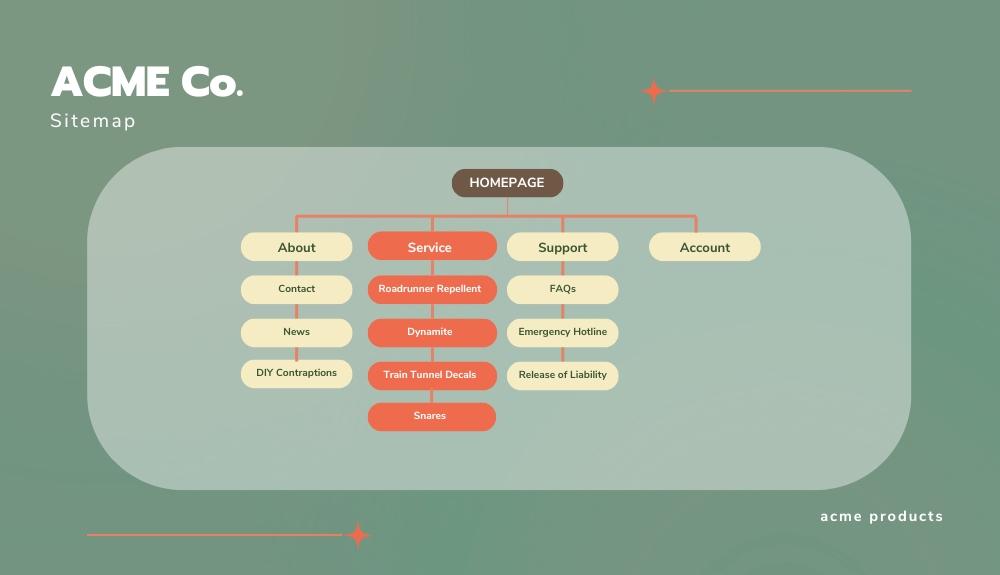
Service Pages Are Super-Important. So Why Are They So Neglected?
Having managed many website projects over the last decade, one of the most common SEO mistakes I see service-based businesses make is to cram all of their services onto a single page, or worse yet, just list them out on the homepage.
I get that creating a page for every service you offer can be a lot of work, but it’s also super-valuable. If your service based business doesn’t have landing pages for your core services, how do you think your potential clients are comparing your services to others? Most prospects do online research before picking up the phone. Lack of service pages could mean your competitors (the ones who have service pages) are the ones bringing home the leads.
And service pages will not only help you rank in Google, they will also give LLMs additional info to share with users. The more you can share about what you do online (and how you do it) th better off you will be.
Are You Wearing Homepage Goggles?
I think one of the reason “service page neglect” happens is because of a homepage-centric view of websites. It’s easy to imagine that most site visitors land on your homepage, absorb everything, and then maybe browse the rest of your website like flipping through a magazine before giving you a ring. This view makes all other pages dependent on the homepage for context. It’s dangerous because most people don’t land on homepages. It’s usually far less than 50% of a site’s traffic.
The whole reason Google exists is to get people directly to the page they want. That means skipping the front door and landing straight in the drawing room. This is why it’s important to give your service pages just as much care and feeding as your homepage. In fact, they are likely more valuable in capturing new business than your homepage.
But there’s more to this then just creating a great service section. You’ve got to create service pages that will attract traffic. And to do that, we’ve got to talk a bit about how people use search engines.
Understanding Search Queries and Service Pages
Google searches can be broken down into three basic categories: informational, transactional, and navigational.
Informational queries
When users are looking for information or answers to a specific question. Examples include “what is SEO?” or “How many pints are in a quart?”
Transactional queries
These are searches where users are looking to complete a specific action, such as making a purchase or booking a service. Examples include “buy iPhone 13” or “hire a web developer.”
Navigational queries
These are searches where users are looking for a specific website or brand. Examples include “Facebook” or “Amazon.”
For our purposes we can throw out Navigational queries and talk a little bit about the other two. Transactional and Informational. Both of these query types can be charted along a buyers journey. And providing helpful content for users makes their job easier and builds trust.
The Buyer’s Journey
The buyers journey (or buyers funnel) typically involves stages such as:
Awareness: The customer becomes aware of a problem or need.
Consideration: The customer researches and evaluates potential solutions.
Conversion: The customer makes a purchase or takes a desired action like making a phone call.
An informational query is likely going to fall into stage 1 or 2. While a transactional query would fall into stage 3.
The Role of Service Pages
Now, here’s the crucial part: if you offer a service, but only list it on your homepage, the chances of people finding you in search when searching for that specific service are basically zero. Why? Because in general, search engines like Google won’t rank you for a search query if you don’t have a dedicated web page that addresses it.
When someone searches for “Oven repair in New York,” they are probably ready to get their credit card out and pay somebody for that service. It’s a transactional search. But if you want to show up for that search, Google needs a specific page on your website that matches that query. If all you have is a services page that lists 35 different repair services, it’s unlikely you will compete with a competitor that has a detailed page about how amazing their oven repair services are.
The Growing Importance of AI Search Optimization
With the rise of AI-powered search engines and assistants like Google’s AI Overview, Microsoft’s Bing AI, and other large language models (LLMs), there’s a new dimension to consider when creating service pages. These AI systems don’t just match keywords – they understand context, intent, and uniqueness.
Why AI Search Optimization Matters for Service Pages
- AI Systems Favor Specific Details: LLMs work best when they can extract clear, specific information. Vague service descriptions get lost in the noise, while detailed explanations of your services stand out.
- Differentiation Is Critical: AI search doesn’t just want to know what services you offer, but why yours are unique or better than competitors’. Explicitly stating your unique selling propositions helps AI systems recommend your business when appropriate.
- Conversational Intent Recognition: AI search can understand complex, conversational queries like “Which local business offers premium house painting with eco-friendly materials?” If your service page clearly addresses these specifics, you’re more likely to be featured.
- AI Snippets and Direct Answers: AI search often generates direct answers to queries, pulling content directly from websites. Well-structured service pages with clear explanations are more likely to be featured in these prominent positions.
Practical AI Optimization Techniques for Service Pages
- Use Natural Language Explanations: Write the way people talk. Instead of keyword-stuffed bullet points, explain your services conversationally: “Our premium house painting service includes color consultation, surface preparation, and three coats of eco-friendly paint.”
- Be Explicit About Differentiators: Don’t assume readers (human or AI) will infer what makes you special. State it directly: “Unlike other local plumbers, we guarantee same-day service and provide upfront pricing with no hidden fees.”
- Answer FAQs Comprehensively: Create robust FAQ sections that address common questions about your services. This helps AI systems understand that you’re an authority on the topic.
- Structure Content Logically: Use clear headings, subheadings, and a logical flow that makes it easy for AI to extract the hierarchy of information. This improves the chances of your content being featured in AI overviews.
- Include Specific Service Parameters: Clearly state service areas, pricing models, turnaround times, and qualifications. These specifics help AI match your services to relevant queries.
Optimizing Your Service Pages for Traditional SEO and AI Search
To capitalize on both traditional searches and AI-powered queries, you need to create dedicated service pages that stand out. This means:
- Creating separate pages for each core service you offer
- Each page should have a unique URL, title, and meta description
- Avoid duplicate content across service pages
- Optimizing each page with strategic keyword placement
- Include primary keywords in page titles, headings, and first paragraph
- Use semantic variations and related terms throughout the content
- Incorporate location-specific terms if you serve particular areas
- Providing comprehensive details that answer the “what, why, how, who, and when” of your service
- Explain what the service entails in detail
- Clarify why someone would need this service
- Describe how you deliver the service (your process)
- Specify who would benefit most from this service
- Mention when the service might be needed (seasonal factors, urgency situations)
- Highlighting your unique value proposition for each service
- What makes your approach different from competitors?
- Why should someone choose you for this specific service?
- What are your specific qualifications or specializations?
- Including social proof specific to each service
- Service-specific testimonials or case studies
- Before/after examples when applicable
- Relevant certifications or awards
- Creating service-specific calls to action
- Clear next steps for interested prospects
- Service-specific contact forms or booking options
- Relevant lead magnets (guides, checklists)
- Ensuring technical excellence
- Mobile-friendly design
- Fast loading times
- Schema markup for services (Schema.org Service markup)
- Proper internal linking between related services
The Business Case for Detailed Service Pages
Investing in comprehensive service pages isn’t just about SEO—it’s about conversion. Well-crafted service pages:
- Pre-qualify leads: People who read and understand your detailed service offering are better-informed prospects
- Reduce sales friction: Answering common questions in advance streamlines the sales process
- Demonstrate expertise: Thorough explanations build credibility and trust
- Support your sales team: Service pages become reference materials for both clients and your team
- Create valuable assets: These pages can be repurposed for other marketing materials like brochures or presentations
Real-World Impact
Businesses that implement detailed, dedicated service pages often see dramatic improvements in their search visibility. For example, a local HVAC company that creates separate pages for AC installation, AC repair, furnace maintenance, etc., will consistently outperform competitors with a single generic “HVAC Services” page.
Additional Resources
To learn more about optimizing service pages, check out these helpful resources:
- Google’s Tips for Service-Based Businesses
- Schema.org Service Markup Guidelines
- Google Search Console Help Center
- AI Search Optimization Guide by Search Engine Journal
Conclusion
Service pages might be your most important SEO and AI search asset because they allow you to target specific transactional queries, attract high-intent users, and drive conversions. With AI search growing in importance, detailed and unique service descriptions are no longer optional—they’re essential for businesses that want to stand out in both traditional and AI-powered search results.
So give your service pages the love they deserve, and watch your qualified leads grow!

